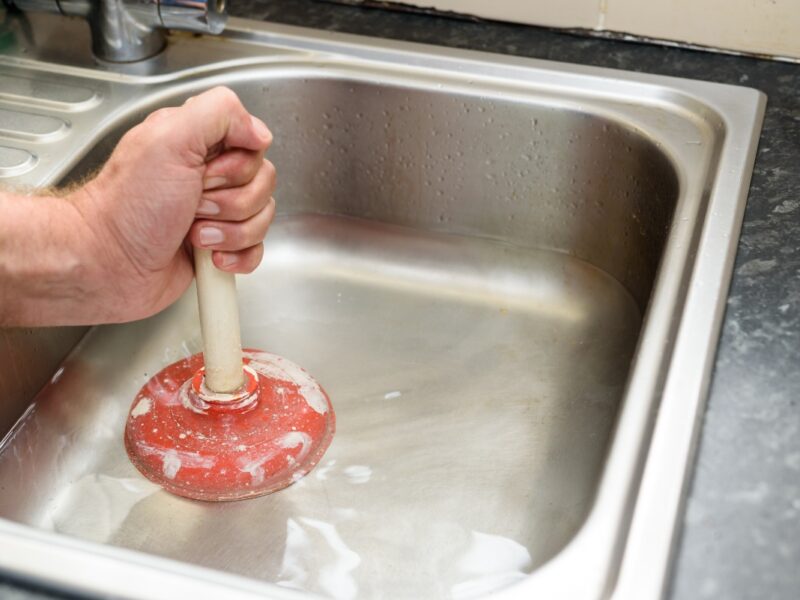If saving money during the uncertain times of COVID-19 appeals to you and you don’t mind getting your hands dirty, then we’ve put together a ‘Home Plumbing Tool Kit’. These are the same tools you’ll find in every plumber’s toolbox. By keeping these essential tools in your toolbelt, you’ll be able to complete your DIY jobs without doing any harm.
Remember though, by law there are certain plumbing jobs that in the interest of public health, should only be carried out by an expert master plumber. For those Plumbing jobs we’re here to help, Call us on 1300 193 298 or book online.
The 10 Plumbing Tools Every Household Should Have
-
Cup Plunger
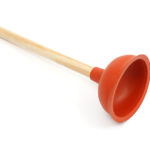
If you were to choose only 1 of these tools, then a Plunger is definitely the one. A Plunger is a universal tool used to unblock drains, sinks, basins, baths, showers and even toilets. Mostly used on less complicated blockages but always the first line of defence for all plumbers. It’s definitely worth spending a little extra on a quality plunger that, when looked after, will last a lifetime.
-
Hand Auger
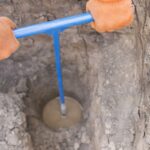 Hand Augers are a very handy tool to have when your drains clog and a plunger won’t unblock it. While a little more difficult to use than a plunger, once you have the hang of it a hand auger will clear those slightly more difficult blockages. A hand auger is made up of a metal cable coiled up in a housing with a handle. The cable is manually fed into the drain and the handle is rotated turning the cable around. The cable may have a small corkscrew or cutting head on it, so when the cable reaches the blockage it can cut through or retrieve the obstruction.
Hand Augers are a very handy tool to have when your drains clog and a plunger won’t unblock it. While a little more difficult to use than a plunger, once you have the hang of it a hand auger will clear those slightly more difficult blockages. A hand auger is made up of a metal cable coiled up in a housing with a handle. The cable is manually fed into the drain and the handle is rotated turning the cable around. The cable may have a small corkscrew or cutting head on it, so when the cable reaches the blockage it can cut through or retrieve the obstruction.
-
A Caulking Gun
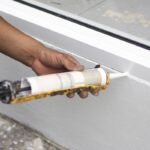
A leaking metal roof or a leaking shower or bath are all times you’ll need a caulking gun. A caulking gun is a universal tool that is also used to apply gap fillers for painting or caulking compounds for glazing, so not only will you use it for your DIY plumbing projects you’ll likely get much more use for it around the home. Like all tools, the better the quality you can afford the better the tool and the easier it is to use, giving you a neat and clean finish.
-
A Hacksaw
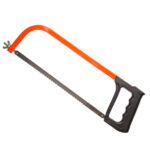 Plumbers use hacksaws to cut metal or plastic pipes, roof flashing and gutters, threaded metal and plastic pipes just to name a few of its jobs. Hacksaw blades are replaceable and come in different grades to cut different products, so it’s best to keep one on hand as they do deteriorate over time. Blades are replaced easily buy loosening the tension nut and re-tightening once the new blade is in position, just make sure you have the teeth of the blade facing in the correct direction, usually facing forward of the handle.
Plumbers use hacksaws to cut metal or plastic pipes, roof flashing and gutters, threaded metal and plastic pipes just to name a few of its jobs. Hacksaw blades are replaceable and come in different grades to cut different products, so it’s best to keep one on hand as they do deteriorate over time. Blades are replaced easily buy loosening the tension nut and re-tightening once the new blade is in position, just make sure you have the teeth of the blade facing in the correct direction, usually facing forward of the handle.
-
Footprint Pipe Wrench
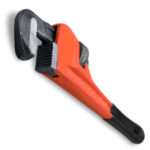 A footprint pipe wrench is used for loosening and tightening plumbing fittings and metal pipes. Usually used in pairs - one to hold the pipe in position while the other turns the pipe or fitting. When a pipe is gripped by footprints, the rotation causes the teeth on the wrench to bite into the pipe and lock it in position. You need to be mindful that this may damage the external surface, so wrapping a rag around the fitting or pipe prior may be a good idea.
A footprint pipe wrench is used for loosening and tightening plumbing fittings and metal pipes. Usually used in pairs - one to hold the pipe in position while the other turns the pipe or fitting. When a pipe is gripped by footprints, the rotation causes the teeth on the wrench to bite into the pipe and lock it in position. You need to be mindful that this may damage the external surface, so wrapping a rag around the fitting or pipe prior may be a good idea.
-
Multi Grip Pliers
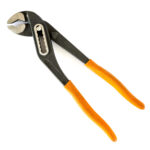 Multi Grip Pliers are great for getting a good grip on something small, they are adjustable in size so one pair does many jobs and are especially handy when you are having difficulty holding it with your hands. These tools are a DIYers dream and a must have as they are useful for so many DIY projects.
Multi Grip Pliers are great for getting a good grip on something small, they are adjustable in size so one pair does many jobs and are especially handy when you are having difficulty holding it with your hands. These tools are a DIYers dream and a must have as they are useful for so many DIY projects.
-
Adjustable Wrench (Shifter)
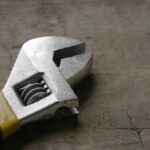
The common shifter is a must for loosening and tightening nuts and bolts around the home. An adjustable wrench will allow you to accommodate various sizes of nuts and bolts within the 1 wrench. By keeping just 2-3 different size shifters in your toolbox, you’ll cover most if not all nut and bolt jobs around the home.
-
Heavy Duty Rubber Gloves
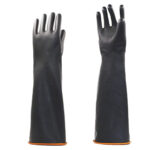 We all know plumbing can be a dirty job, so to keep you safe it’s best practise to wear a pair of heavy-duty rubber gloves when unblocking a drain. Sewers can carry harmful diseases, so when working with it you need to be mindful of keeping your hands and skin clean. The easiest way to do this is wearing PPE, protective gloves and washing your hands with soap and water.
We all know plumbing can be a dirty job, so to keep you safe it’s best practise to wear a pair of heavy-duty rubber gloves when unblocking a drain. Sewers can carry harmful diseases, so when working with it you need to be mindful of keeping your hands and skin clean. The easiest way to do this is wearing PPE, protective gloves and washing your hands with soap and water.
-
Thread Seal Tape
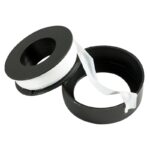 Threaded pipes require threaded tape to seal the joint and prevent leaks. Commonly called Teflon Tape, it is used on gas, water and drainage pipes. There are different products available for gas and water. Keeping a couple of rolls of Teflon in your toolbox for when you need it won’t blow the budget but will save you the heart ache when you need it.
Threaded pipes require threaded tape to seal the joint and prevent leaks. Commonly called Teflon Tape, it is used on gas, water and drainage pipes. There are different products available for gas and water. Keeping a couple of rolls of Teflon in your toolbox for when you need it won’t blow the budget but will save you the heart ache when you need it.
-
Tape Measure
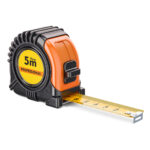 The last plumbing toolkit essential but definitely not the least, is a tape measure. Plumbers are constantly using tape measures as plumbing requires accurate measurements to be taken of pipes, fittings, and fixtures to guarantee correct installation. Remember; “measure twice and cut once” and you’ll avoid costly mistakes.
The last plumbing toolkit essential but definitely not the least, is a tape measure. Plumbers are constantly using tape measures as plumbing requires accurate measurements to be taken of pipes, fittings, and fixtures to guarantee correct installation. Remember; “measure twice and cut once” and you’ll avoid costly mistakes.
Contact Us
Call Essendon Plumbing Services on 1300 193 298 or book online for any plumbing needs.

